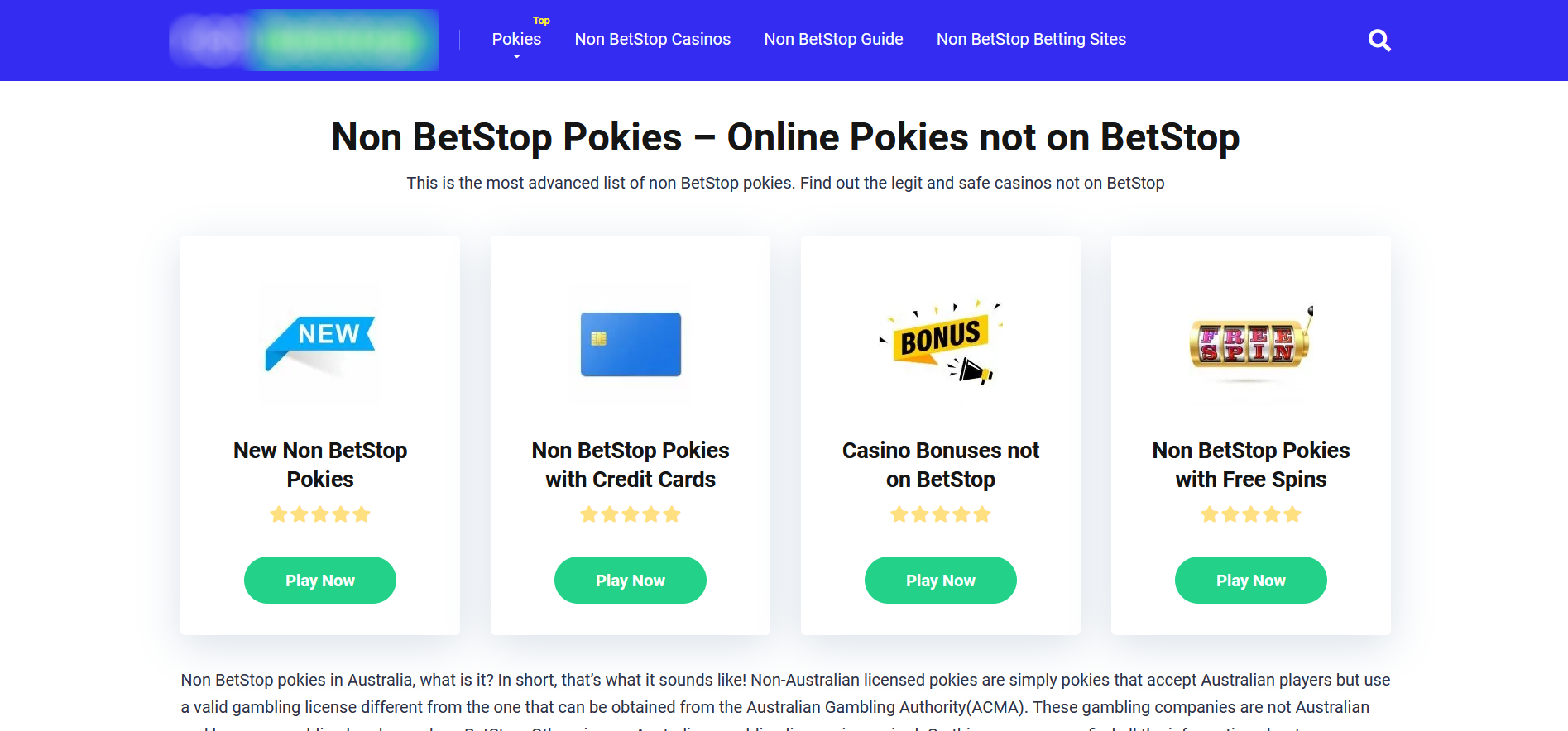The introduction in July of Betstop, a self-exclusion service for gamblers in Australia, by the Australian Communication and Media Authority (ACMA) has been welcomed by both politicians and campaign groups who want to see more protections for vulnerable gamblers.
Betstop allows Australian citizens to self-exclude from all legal online or phone betting operations in Australia in a simple and straightforward process. Once users of the Betstop service have chosen their self-exclusion period, licensed gambling providers are not permitted to accept a bet or open a new account for that customer. Gambling providers are also prevented from sending direct marketing messages to gamblers registered with BetStop.
Betstop is necessary, but it can be exploited
In principle Betstop, like many other nationwide self-exclusion services, is a lifeline for gamblers struggling to control their addiction. However, previous studies carried out by Rightlander have shown that services like Betstop can create opportunities for marketers who are ready to exploit the very people the service is designed to protect.
Australia, like many other regulated online gambling markets, suffers from the issue of unlicensed operators queuing up to take money from gamblers. To the untrained eye, it is very difficult to distinguish between a licensed and an unlicensed gambling operator. All too often bonuses and inducements offered by unlicensed operators make it far too tempting for gamblers to sign up and start wagering.
Previous studies by Rightlander into self-exclusion services
In February 2021, Rightlander conducted two studies Gamstop study in UK and Spelpaus study in Sweden into the activities of marketers following the launch of two similar schemes to Betstop. In those studies, Rightlander concluded that marketers had deliberately created content that could be found through internet searches for keywords such as: ‘casinos not on Gamstop’ and ‘Casinos utan Spelpaus’ (Casinos not on Spelpaus). In Sweden, the marketing practices were so prolific that nearly 100 different websites had content deliberately encouraging gamblers to wager at unlicensed casinos, even though they had likely self-excluded.
Betstop investigation
A more recent investigation carried out by Rightlander in October 2022 found 7 affiliate websites targeting keywords that might encourage gamblers who had self-excluded with Betstop to gamble with an unlicensed gambling operator. The types of keyword searches we investigated included ‘casinos not on betstop’, ‘not on betstop’ and ‘betting sites not on betstop’.
The number of sites targeting ‘betstop’ search terms is significantly less than the 46 websites targeting ‘Gamstop’ terms and 98 websites targeting ‘Spelpaus’ terms in our previous studies. However, it does highlight that some online marketers are willing to exploit this opportunity as the rewards are estimated to be substantial when weighed against the risks.
Affiliate links not activated
Interestingly, the study revealed that only 3 of the 7 affiliate websites targeting ‘betstop’ terms had affiliate links to unlicensed casinos. The other 4 websites appeared to be placeholders, waiting to be deployed at a later date. Logic suggests that it is important for the marketer to get in position in the search rankings, even if they are not willing to cross that line just yet to start making commissions from gamblers who follow the links to unlicensed casinos on their websites.
Unlicensed operators taking bets
From our research, Rightlander was able to identify 19 online casinos that were advertised on pages which has ‘betstop’ keyword content on them. There are many more unlicensed gambling operators that target Australian players, but it appears that not all of them have the appetite to be associated with this controversial term, which is very much considered exploitative when connected with any form of marketing practice.
Speaking about the findings, Ian Sims, Founder of Rightlander said: "We have noticed that whenever a gambling jurisdiction tries to introduce a self-exclusion service that there are a small number of people prepared to try and take advantage of those with the potential for addiction. It was first noticed when Gamstop was launched in the UK and then again when Spelpaus was introduced in Sweden.”
“The issue is exacerbated by some affiliate marketers leaping on the search terms that are used to bypass these services for Search Engine Opitmisation reasons. In some instances, the affiliate educates customers of the pitfalls, but others are purely trying to capitalise on an opportunity to improve their rankings and reinforce the notion that this path to gamble again exists.”
“Occasionally brands belonging to licensed gambling operators are used to ‘legitimise’ a list of unlicensed operators – a sort of ‘catfish’ approach. Therefore, this issue is not only a problem for regulators, but it can also become a problem for licensed gambling operators too.”
“Whichever way you look at it, this issue is unlikely to go away any time soon. Even if affiliates were not part of the equation, there are few offshore operators that abide by an ethical code. Typically, profits are put first, before anything,” he added.
The AMCA and the various State-level gambling authorities in Australia are likely to be paying more and more attention to affiliate marketers targeting keywords related to Betstop. If the problem grows then we could likely see a determined effort by the authorities to clamp down on those participating in the practice of targeting self-excluded gamblers.

 by Brean Wilkinson | 31 Oct 2022
by Brean Wilkinson | 31 Oct 2022
 4-min read
4-min read




